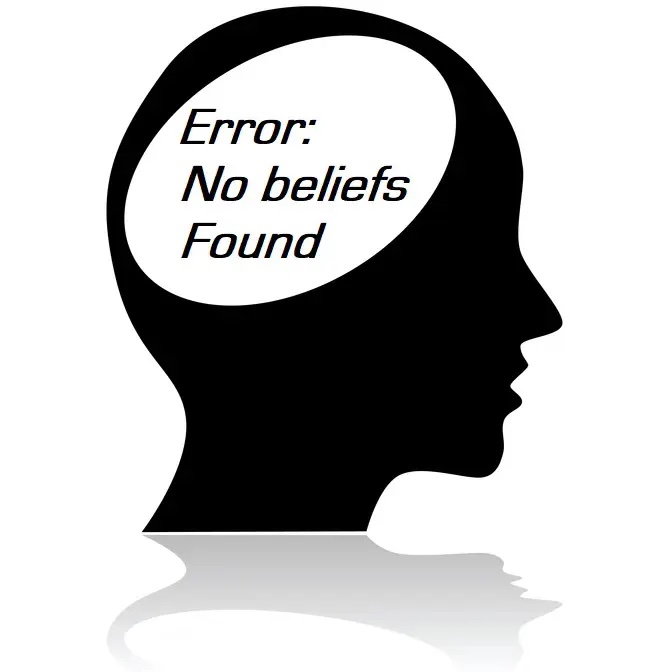
What If Atheists End up Realizing Everything they know About Reality Is Just a Fraction of the Truth?
Mention God and Atheist goes crazy sometimes… That is because atheism often stands on the foundation that what can be measured, observed, and scientifically proven is the only truth. But what if there is a dimension beyond the tangible? Traditional science is only beginning to touch through quantum physics, consciousness studies, and near-death experiences (NDEs).
This blog explores the experiences of notable atheists and scientists who, when faced with evidence beyond the material world, began to question their convictions. Could the existence of God be more than an ancient myth, a truth interwoven with the very fabric of reality?
1. The Near-Death Experience Phenomenon: Coincidence or Glimpse into the Divine?
Near-death experiences have always fascinated me – because i had one – but also baffled scientists for decades. Stories of people seeing light, meeting deceased loved ones, or feeling an overwhelming sense of love and peace aren’t uncommon. For some, these moments are just brain chemistry; for others, they are life-changing events that provide undeniable evidence of a higher power.
One such skeptic was Dr. Eben Alexander, a neurosurgeon who experienced a profound NDE. He was a firm atheist who believed the mind was merely the product of the brain’s biochemical processes. But when a rare illness left him in a coma for seven days, Alexander had an experience that defied his understanding of science. He described traveling through a realm of love and compassion so intense, he could no longer attribute it to mere brain activity. In his words, “The brain itself doesn’t create consciousness; it’s more of a receiver.” His experience led him to conclude that there is an intelligent design beyond our comprehension.
2. The Universe: Designed or Random Chance?
The fine-tuning of the universe is another point that has led many scientists and skeptics to reconsider their stance on the existence of God. The idea that the universe is so precisely calibrated—gravity, the cosmological constant, the properties of water, seems too perfect to be the result of random chance. Sir Fred Hoyle, a prominent British astronomer and once a staunch atheist, remarked: “A common sense interpretation of the facts suggests that a superintellect has monkeyed with physics, as well as with chemistry and biology.”
As quantum physics evolves, the notion of a random universe appears less plausible. Quantum mechanics reveals that particles behave unpredictably, and their states only collapse into a fixed reality when observed, implying that consciousness plays a role in shaping reality. This aligns with the idea of a conscious observer or creator. If we, as conscious beings, influence the reality we experience, could a higher consciousness, a divine entity, be responsible for the order of the cosmos?
3. Quantum Psychology: The Intersection of Science and Spirituality
Quantum psychology offers a fascinating bridge between science and spirituality. It proposes that our perception shapes our experience of reality, and the mind, like the observer in quantum experiments, plays a critical role. Traditional psychology often views the mind as an isolated phenomenon, but quantum psychology suggests that consciousness is connected to a greater whole, a unified field that quantum physicists like Erwin Schrödinger and Max Planck have hinted at.
Max Planck, the father of quantum theory, famously said, “I regard consciousness as fundamental. I regard matter as derivative from consciousness.” This perspective aligns with the idea that consciousness is not a byproduct of the brain but an element of a greater reality, possibly the divine source itself. If the mind can influence the physical realm, and if consciousness is indeed fundamental, then the existence of a divine, all-encompassing consciousness becomes a plausible explanation for the design and order we observe.
4. Former Atheists Who Became Believers: The Journey of Logic and Experience
Antony Flew: One of the most famous atheists of the 20th century, Flew spent much of his life arguing against the existence of God. But in 2004, he shocked the academic world by announcing his belief in a deity. His change of heart wasn’t due to a mystical experience or an emotional conversion but rather a logical conclusion. Flew acknowledged that “the integrated complexity of life itself, which is far more complex than the physical universe, can only be explained in terms of an intelligent source.” For Flew, the evidence found in DNA and molecular biology pointed to a designer beyond the random mutation and selection proposed by Darwinian evolution.
C.S. Lewis: Known for his brilliant writing and imaginative works, Lewis was once a staunch atheist. He described himself as “very angry with God for not existing.” However, after years of intellectual exploration, Lewis found that his atheistic worldview could not account for the sense of longing and the deep moral order he experienced. His conversion wasn’t merely a rejection of atheism but an acceptance of a more profound truth: “I believe in Christianity as I believe that the Sun has risen, not only because I see it, but because by it, I see everything else.”
These examples show that for some, the journey from atheism to belief is not a leap of blind faith but a gradual acceptance of evidence and experiences that point to a higher reality.
5. The Role of Open-Mindedness: A Question for Atheists
Atheism, like any worldview, is built on certain assumptions: that the universe is random, that life is a series of coincidences, and that consciousness is merely a product of chemical reactions. But is this perspective genuinely open-minded if it refuses to acknowledge evidence that suggests otherwise?
“Are You Open-Minded Enough to Question Your Own Beliefs?”
For instance, quantum entanglement demonstrates that particles can remain interconnected, affecting each other instantaneously, regardless of distance. This phenomenon challenges the traditional view of space and time and hints at a reality where everything is connected. If the universe operates on interconnectedness and non-locality, could this be an indication of a divine intelligence orchestrating the harmony of all things?
The Evidence and the Leap of Faith
At the end of the day, the question remains: Is it possible that everything atheism holds as true is just a fraction of the full picture? Quantum psychology, quantum mechanics, and near-death experiences open doors to realms that traditional science has not yet fully grasped. The complexity and fine-tuning of the universe point to an intelligent design that’s hard to dismiss as mere coincidence.
The journey from atheism to belief does not have to be a denial of science; rather, it can be an acceptance that science, spirituality, and consciousness are not separate but interconnected. As Carl Jung once said, “The pendulum of the mind oscillates between sense and nonsense, not between right and wrong.” The willingness to explore beyond the material and the known may lead one to discover that faith and reason are not opposites but, rather, complementary forces guiding us to a deeper understanding of existence.
Whether you’re a skeptic or someone open to exploring new perspectives, the question remains: Are you willing to consider that beyond what is observable, there may exist a source, an intelligence, a divine consciousness, that is the key to understanding everything we see and everything we are?
Let’s Keep the Growth Going
You’ve come this far for a reason. Stay connected and receive insights that meet you where you are—right in your inbox.
- Join our Newsletter -
Share:
Categories
- A Course in Miracles - Weekly Study Guide 2
- Ancient Wisdom 16
- Book Summaries 20
- Coach G's Journal 65
- Conscious Motherhood 4
- Conscious Pregnancy 2
- Conscious Women 28
- Gloria’s Journal 6
- Life Coaching 84
- Marriage & Relationship 22
- Parenting 7
- Productivity 11
- Quantum Psychology 80
- Self-Improvement 107
- Spirituality 64
- Top Business Coaching Strategies 9
Popular Posts
When Letting Go of Hope Can Actually Save You
Tags
Useful Links
Quick Menu
Contact Us
- +971585541780
- info@coach-g.com
- Al Murjan tower, Al Marsa Street Dubai Marina




